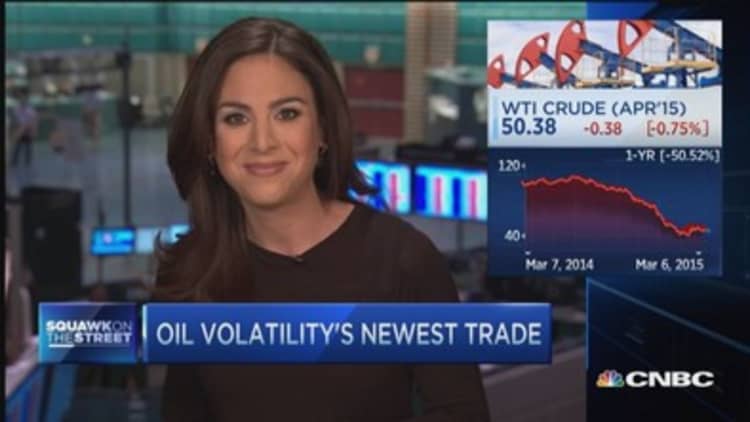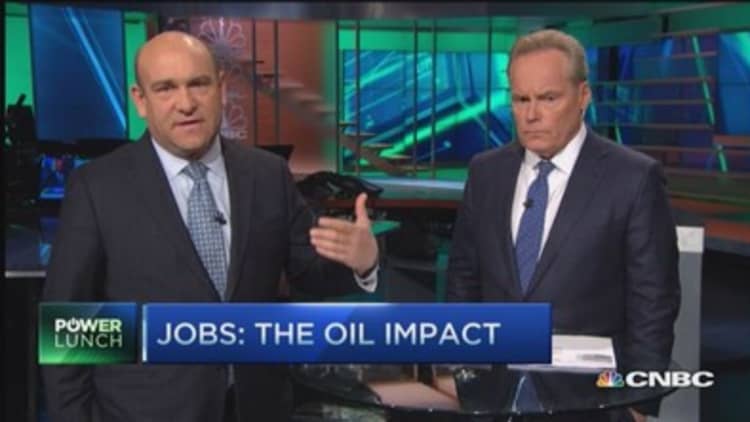slipped further into the red on Friday afternoon, falling below $60 a barrel as a stronger dollar balanced worries over the impact of fighting in Libya and Iraq on Middle East and North African oil production.
U.S. light crude closed down $1.15, or 2.27 percent, at $49.61 a barrel. Brent was down 65 cents a barrel at $60.
The dollar hit an 11-½-year high against a basket of currencies on Friday after strong U.S. jobs data boosted expectations of a sooner-than-expected interest rate rise in the world's largest economy.
U.S. employment accelerated in February and the jobless rate fell to 5.5 percent, signs that could encourage the Federal Reserve to raise interest rates in June.
Read More Iraq, Iran and Libya are wildcards for oil: Expert
Oil services company Baker Hughes reported the number of U.S. rigs exploring for oil fell by 63 in the last week, up from a 33-rig decline in the previous survey. The report is an indicator used by some investors to gauge whether shale producers are cutting output after prices slumped.



Supplies remained a major worry for the international oil markets.
Fighting has escalated in northeast Iraq, where Islamic State militants have set fire to oilfields to deter Shiite militiamen and Iraqi soldiers from advancing. In Libya, worsening security has led to the closure of 11 oilfields.
"Supply disruptions have certainly come back into focus for now," Virendra Chauhan, oil analyst at consultancy Energy Aspects, told Reuters Global Oil Forum. "Libya is noteworthy because militant attacks on infrastructure are increasing."
Read MoreOil firms are swimming in data they don't use
Tamas Varga, analyst at London brokerage PVM Oil Associates, agreed: "The Libyan and Iraqi oilfield skirmishes are worrying ... There are serious supply issues there."
Investors watched for more details of nuclear talks between Iran and major world powers.
Western diplomats say there are some signs of progress in discussions with Tehran over its nascent nuclear industry. Any sign of a deal between Iran and world powers could result in a flood of Iranian crude returning to the market.
Iran's foreign minister has suggested a 10-year moratorium on some aspects of the nuclear program might be acceptable, although he declined to discuss the issue in detail.
Read MoreExpect low prices, more volatility in oil: Exxon CEO
Iran's semi-official Mehr news agency on Friday quoted National Iranian Oil Co's head of international affairs, Mohsen Ghamsari, as saying Tehran would increase crude exports if sanctions were lifted.

